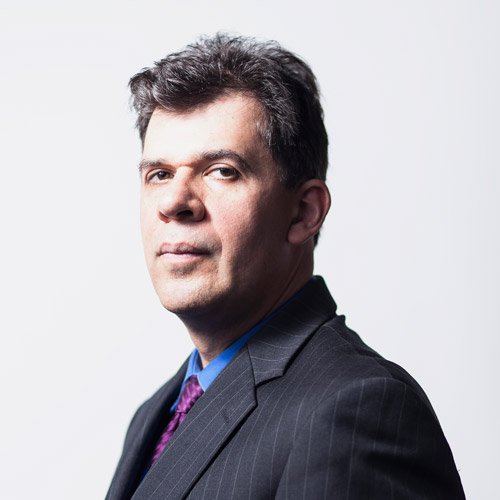After over 20 years of being fully engaged in the food industry, rising to international-leader status within it, Helio Castano now leads strategic businesses and post-merger integrations (PMI) for Sigma Alimentos, helping it to become one of the largest multinational organizations. Today, Sigma already has a strong presence in 18 countries.
Early in his career, Castano sought out the first-hand international, cross-functional, and cross-cultural experience he knew would be required of him to become a successful global business leader. Throughout his career with Sigma Alimentos, he led the PMI of Sigma Foods (a Texas-based, $200 million company), Bar-S Foods (Arizona-based, $500 million), Mexican Cheese Producers (Wisconsin-based, $50 million), and Sigma Processed Meats (Oklahoma-based, $50 million).
Now vice president of Bar-S Foods, the US business for Sigma, he oversees functions that are key for an effective integration, like human capital, legal and IT, and strategic for Sigma’s future growth. For example, Castano has bottom-line responsibility for Sigma’s US Dairy Division.
“The US dairy business is a vibrant contributor to the company’s development,” Castano says. “The demand for Hispanic cheeses in the US is growing faster than any other cheese segment, and Sigma is one of the largest manufacturers of Hispanic cheeses in the world.”
Sigma Alimentos has grown from a company that was focused in the early ‘90s solely on the Mexican market, with revenues in the low hundreds of millions, to a six billion dollar multinational organization with operations in the United States, Europe, Central and South America, and the Caribbean.
Combining best practices with cross-cultural leadership
Sigma’s sustained growth has been possible because the company invests heavily in human capital; Castano himself can attest to that. Through Sigma, he received top-level training all over the world. Castano has participated in educational programs in Asia, Europe, Latin America, and the US, through Harvard, Stanford, London Business School, Thunderbird, and Wharton, among other higher education institutions.
His international competences, multi-functional experience, and cultural adaptability have made Castano an effective leader whose cross-cultural style relies on three basic concepts: listen, lead, and over-communicate.
“Listening and observing with an open mind is the first step for cultural understanding, or what I like to call ‘cultural empathy,’” he says.
As for leadership, Castano holds that in a transitional PMI or the day-to-day business of running a merged division, it’s not enough to understand the differences between two cultures; you must provide clear, steady guidance of expected behaviors. From there, he says, a new combined culture will emerge.
“We must recognize when working with a culturally diverse team, miscommunication is to be expected,” he says. “Assuming everyone has the same understanding can have disastrous results. Sigma sees a high return from clear and consistent messages communicated at all levels.”
The international markets
At the global level, the company has made the organizational and cultural changes needed to meet the demands of its growing international footprint.
“Synergies with merged entities demand flexibility throughout the local supply chain”, Castano says. “However, it’s also important to facilitate benchmarks among regional businesses and benefit from best practices. Integrated IT systems and standardized KPIs are key for enhancing knowledge sharing.”
Sigma has continued to build a highly talented team that works together across the globe. What Castano looks for in building a team are goal-driven individuals who are critical thinkers with robust emotional intelligence.
“I try to identify and passionately develop promising professionals who fit this model,” he explains. “I’ve been fortunate to have superb mentors throughout my professional life, some of whom still lead our organization today.”
The American market
The US market is strategically relevant for Sigma because of its size, stability, and future growth opportunities. The major difference between working with Sigma in Mexico and in the US comes down to simple economics, Castano says. “The higher cost of labor changes the economics in manufacturing, automation, administration processes, and our sales and distribution approach. Purchasing drivers and consumers’ sensorial preferences demand that we adapt our product offerings. We also adopted policies and practices that effectively attract the best local talent.”
In his current role, Castano plans to lead profit and loss business for the company’s thriving US dairy business, while taking on international merger and acquisition opportunities and responsibilities.
La familia
For any executive, there is the public, business sphere and also a private one. For Castano, they go hand-in-hand.
“On the personal side, I’ve been blessed with the best partner in the world,” he says proudly. “My wife Anabel quickly adjusted our lifestyle to leverage the benefits of our new location in Scottsdale, Arizona, without giving up the tenets from our Mexican heritage that were important to us as a family.” These are the same cultural values that Castano maintains in his professional sphere as well.

